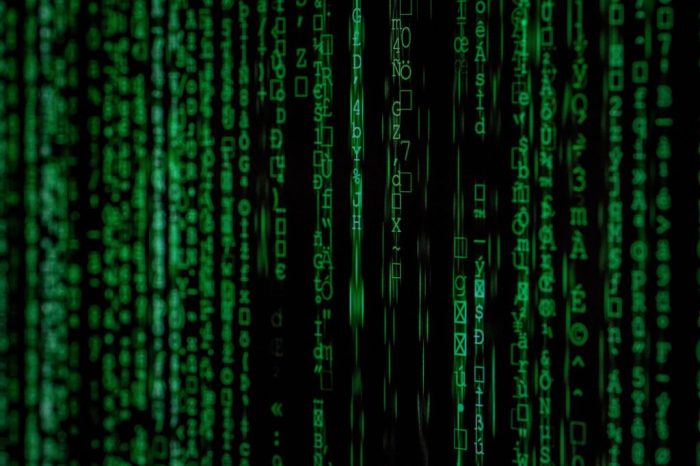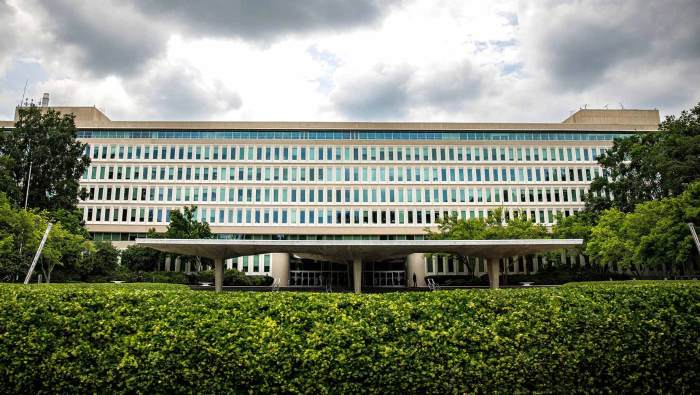FBI CJI data must be safeguarded to prevent unauthorized access, breaches, and cyberattacks. This highly sensitive information requires robust protection measures to uphold legal and ethical obligations and maintain public trust.
The significance of CJI data necessitates a comprehensive approach to data security, encompassing encryption, access controls, and disaster recovery plans. Collaboration among law enforcement agencies and stakeholders is crucial for effective information sharing and data protection.
1. FBI CJI Data Sensitivity and Importance

FBI Criminal Justice Information (CJI) data is highly sensitive and critical to law enforcement operations. It includes information about criminal activity, suspects, victims, and witnesses. Safeguarding this data is paramount for protecting national security, ensuring the integrity of investigations, and maintaining public trust.
The unauthorized disclosure of CJI data can have severe consequences, including compromising ongoing investigations, endangering individuals, and eroding public confidence in law enforcement.
Legal and Ethical Implications
- The Privacy Act of 1974 protects individuals’ privacy by regulating the collection, use, and disclosure of personal information by federal agencies.
- The FBI’s CJI policies and procedures are designed to comply with the Privacy Act and other applicable laws.
- Law enforcement agencies have a legal and ethical obligation to protect CJI data from unauthorized access and disclosure.
2. Threats and Vulnerabilities to FBI CJI Data: Fbi Cji Data Must Be Safeguarded To Prevent

Potential Threats
- Cyberattacks, such as hacking and phishing
- Data breaches caused by internal or external actors
- Unauthorized access by individuals with authorized access
- Physical theft of devices or storage media containing CJI data
Vulnerabilities
- Unpatched software and operating systems
- Weak passwords and access controls
- Lack of encryption for data at rest and in transit
- Insufficient monitoring and intrusion detection capabilities
3. Safeguarding Measures for FBI CJI Data
Encryption
Encrypting CJI data at rest and in transit protects it from unauthorized access even if it is intercepted or stolen.
Access Controls
Implementing strong access controls, such as role-based access, two-factor authentication, and biometrics, limits who can access CJI data.
Intrusion Detection Systems
Intrusion detection systems (IDSs) monitor network traffic and system activity for suspicious behavior, alerting administrators to potential threats.
Data Retention, Disposal, and Disaster Recovery
- Establish clear policies for data retention and disposal to prevent unnecessary storage of sensitive data.
- Implement disaster recovery plans to ensure CJI data is protected in the event of a natural disaster or other emergency.
4. Law Enforcement and CJI Data Protection

Law enforcement agencies have a critical role in protecting CJI data. They are responsible for:
- Implementing and enforcing policies and procedures to safeguard CJI data
- Investigating and prosecuting individuals who compromise CJI data
- Educating law enforcement personnel about the importance of CJI data protection
Legal Frameworks and Regulations
The legal frameworks and regulations governing the handling of CJI data include:
- The Privacy Act of 1974
- The FBI’s CJI policies and procedures
- State and local laws
5. Collaboration and Information Sharing
Collaboration among law enforcement agencies and other stakeholders is essential for safeguarding CJI data.
Secure Information Sharing, Fbi cji data must be safeguarded to prevent
- Establishing secure channels for sharing CJI data between law enforcement agencies
- Using encryption and other security measures to protect data during transmission
Data Exchange
Facilitating the exchange of CJI data between law enforcement agencies and other criminal justice entities, such as prosecutors and courts, while ensuring data integrity and privacy.
Q&A
Why is FBI CJI data so sensitive?
CJI data contains highly personal and confidential information, including criminal history, fingerprints, and DNA profiles, which could be exploited for identity theft, fraud, or other malicious purposes.
What are the potential threats to FBI CJI data?
Threats include cyberattacks, data breaches, unauthorized access, and human error. These can compromise data integrity, confidentiality, and availability.
How can FBI CJI data be safeguarded?
Safeguarding measures include encryption, access controls, intrusion detection systems, data retention policies, and disaster recovery plans.
What is the role of law enforcement in protecting CJI data?
Law enforcement is responsible for implementing and enforcing data security measures, investigating breaches, and collaborating with stakeholders to protect CJI data.
Why is collaboration important for safeguarding CJI data?
Collaboration among law enforcement agencies and stakeholders enables information sharing, best practice exchange, and coordinated responses to threats.